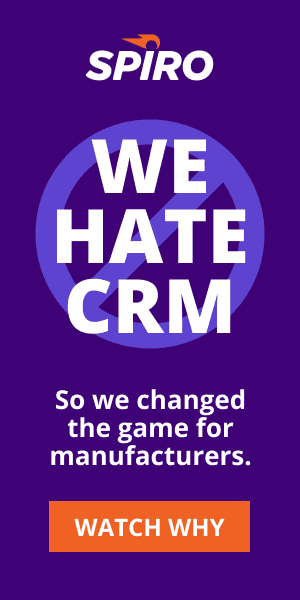Why Now is The Time to Sell, Not to Hide
Salespeople are finding themselves faced with a common refrain from prospects: “We can’t do anything right now.”
At first blush, this response seems logical given the global pandemic and resulting economic turmoil. In fact, many salespeople may possibly find themselves understanding and agreeing with the prospect’s position.
But after having an interesting conversation with Bob Bennett, CEO of InvoiceCloud, we came to the same consensus: while your prospect’s reaction might be well intentioned, it could be a strategic mistake.
Why? Because during a time when companies are pulling in spending, freezing hiring and laying off people, it’s in a prospect’s best interest to make themselves look good and show that they’re working hard to help their company, and this can be done by being proactive and looking for an edge while things are in flux.
Under-reaction vs. Over-reaction
According to McKinsey Consulting, during a crisis, there’s higher risk of under-reacting than over-reacting:
“Unprecedented crises demand unprecedented actions. Lessons from past crises suggest that leaders are more likely to under-react. What is necessary is to take the bold and rapid actions that would feel too risky in normal times.”
Hunkering down might seem like a natural reaction in times of crisis. And in some industries and companies, it’s the right thing to do right now. But in many instances, a decision-maker is likely to gain from showing the ability to be innovative, aggressive and scrappy during a downturn.
Put simply, now is not the time to hide, now is the time to step up and lead.
Your prospects don’t have any control over when this crisis will end, or how much of a long-term effect it will have on the larger economy. But that person can make an impact within their own organization right now.
Not showing more value right now could leave them exposed during another round of layoffs, when difficult decisions are made. At the same time, organizations that pull back on building foundations within their teams, streamlining processes and setting themselves up for success could realize – too late – that the recovery comes slower for them.
What Does This Mean for Salespeople?
So what does all of this mean for salespeople? And how should it affect discussions with prospects?
When a prospect gets into a defensive posture and says that there’s too much uncertainty to move forward at this time, a salesperson’s job is to convey the benefit of doing the opposite: making a forward-thinking, innovative decision for their company, when others are fearful.
Salespeople can counter the defensive posture by asking themselves these questions about their prospects:
- What value can I bring to prospects who I know can’t buy right now? (Can I help them start now and pay later?)
- What is the opportunity cost for prospects who push this project farther out? Conversely, how can this project help them recover from this downturn faster?
- What new services can I offer to existing customers who already see value from the product?
If you can convey the opportunity presented by this unprecedented situation, and how that opportunity can benefit the prospect and their company, you will differentiate yourself from those who are throwing their hands in the air and saying “I give up.”
Now is the time to sell, not to hide, both for you, and for your prospect.

